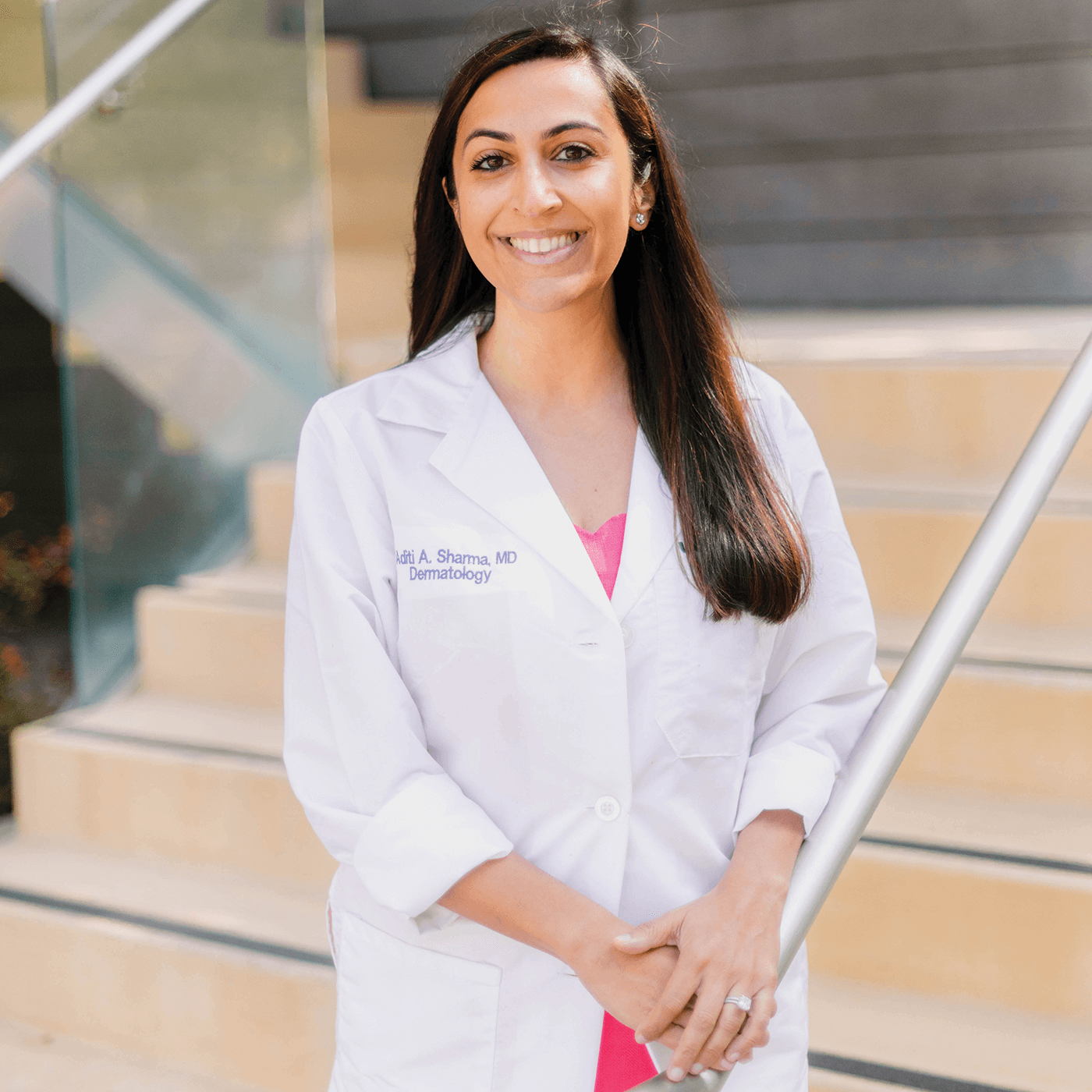
Health & Medicine
Music, medicine and a toolkit from Grandpa
Professor and dermatologist Aditi Annu Sharma (M.D.’17) chats about her inventive side
In early 2021, when hospitals needed more personal protective equipment to safeguard staff against COVID-19, Aditi Annu Sharma, M.D. (M.D.’17), an assistant professor of dermatologic surgery at the University of California-Irvine, helped start the nonprofit Recyclablu to repurpose 2,200 pounds of about-to-be-discarded sterilization wrap into face masks. She then distributed the masks to University of California Health System employees and underserved populations in Los Angeles.
VCU Alumni honored Sharma in 2022 for her lifesaving work with its annual 10 Under 10 Award, given to 10 alums who have earned their first VCU degree within the past decade and made noteworthy contributions to their fields.
In this Q&A, Sharma shares how her mask-making plan developed, the origins of her passion for engineering and innovation and how playing drums makes her a better surgeon.
How did you decide to create masks out of recycled sterilization wrap material?
We started out 3D-printing masks using polylactic acid, a biodegradable plastic, and then an antimicrobial material containing copper nanoparticles. We quickly realized 3D printing was too time-intensive and costly. Around that time, I stumbled upon an article from the University of Florida suggesting sterilization wraps have a filtration efficiency of 99.9%. We started looking at our own outpatient and surgical centers and realized we were just throwing this material away after [a] single use. We then began working with engineers and local seamstresses to create masks out of the recycled material.
You’ve said your passion lies at the intersection of engineering, medicine and sustainability. What sparked that passion?
My grandfather, an electrical engineer, gave me my first toolkit with basic tools when I was 5, and I would follow him around the house fixing everything, from piping in the yard to lighting fixtures and toilets. He wanted me to be self-sufficient. My curiosity for how things work and understanding that I can leave things in a better condition comes from him. My grandfather used to say, “Engineering is just like surgery: Every cut must be precise.”
You gave a TEDx talk at VCU that began with you playing tabla [two differently shaped drums from India played by hand]. What role has music played in your life?
When I was 4, I told my mom I wanted to be a drummer. My brother was into singing, so I started playing Indian drums with him. As I got older, I started taking Western drumming classes to play while listening to bands like Nirvana and Red Hot Chili Peppers. Playing drums has made me a better surgeon.
How?
Playing drums has helped me develop better coordination and ambidexterity. It has also given me the ability to anticipate changes in situations and be more adaptable. Playing drums has fostered a creativity that allows me to approach problems encountered in medicine with an innovative mindset. And, just like being in a band, surgery requires a cohesive and synergistic team to achieve the best outcomes.
